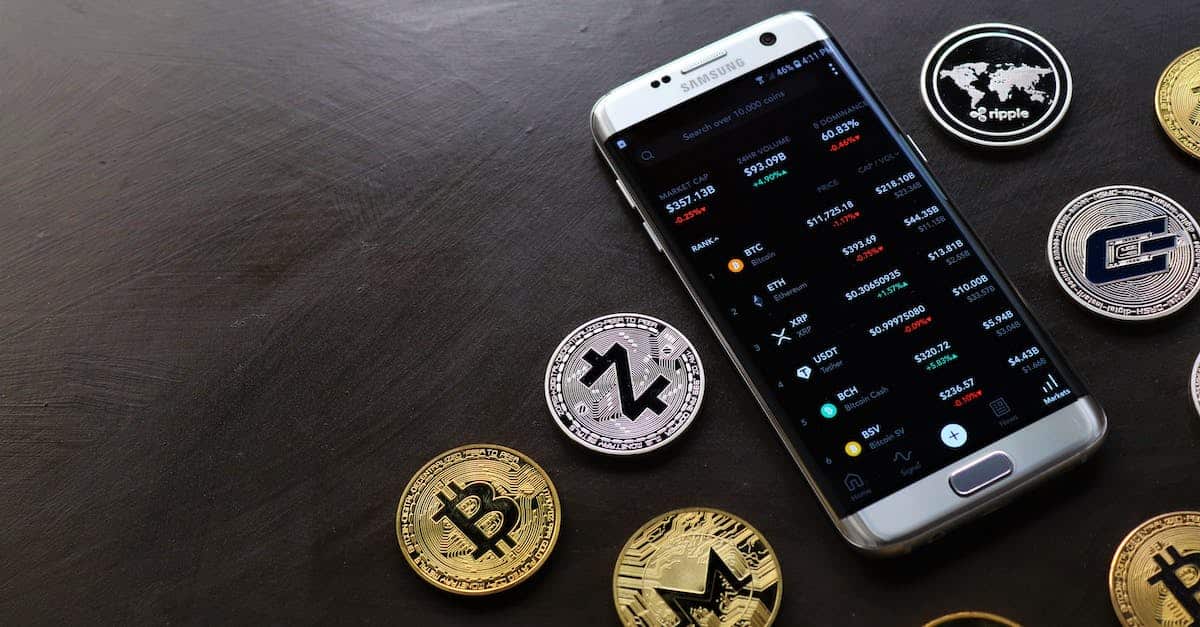Welcome to the future of crypto wallet security! As we enter the year 2024, the importance of safeguarding your digital assets has never been greater. With the rise in popularity of cryptocurrencies, the need for robust security measures to protect your funds from hackers and cyber threats has become paramount. In this article, we will explore the latest advancements in crypto wallet security and provide you with essential tips to ensure the safety of your investments.
In the fast-paced world of cryptocurrencies, staying one step ahead of potential security risks is crucial. As we look ahead to 2024, the landscape of crypto wallet security is evolving rapidly. From hardware wallets to multi-factor authentication, new technologies and strategies are emerging to fortify the protection of your digital assets. Join us as we delve into the cutting-edge innovations and best practices that will help you navigate the ever-changing world of crypto wallet security.
The Importance of Crypto Wallet Security in 2024
As the popularity of cryptocurrencies continues to grow, ensuring the security of your digital assets becomes increasingly important. In 2024, the landscape of crypto wallet security is evolving rapidly, with new technologies and strategies emerging to fortify the protection of your investments.
Here are a few reasons why crypto wallet security is crucial in 2024:
- Protecting Your Funds from Hackers: With the rise of cryptocurrencies, hackers are becoming more sophisticated in their attempts to access digital assets. By implementing robust security measures for your crypto wallet, you can prevent unauthorized access and safeguard your funds.
- Preventing Loss or Theft: Unlike traditional bank accounts, cryptocurrencies are more susceptible to theft or loss. Without proper security measures, you risk losing your entire investment. By prioritizing crypto wallet security, you can mitigate the risk of losing your funds.
- Preserving Privacy and Anonymity: One of the key attractions of cryptocurrencies is the privacy and anonymity they offer. However, without proper security measures, your personal information and transaction history can be compromised. By implementing strong security practices, you can protect your privacy and maintain the desired level of anonymity.
- Ensuring Peace of Mind: Investing in cryptocurrencies can be exciting, but it can also be stressful if you’re constantly worried about the security of your digital assets. By prioritizing crypto wallet security, you can have peace of mind knowing that your investments are well protected.
With the rapid development and adoption of cryptocurrencies in 2024, ensuring the security of your digital assets is paramount. By implementing robust security measures, you can safeguard your investments from hackers, prevent loss or theft, protect your privacy, and ultimately enjoy peace of mind. Stay tuned as we explore the latest advancements in crypto wallet security and provide essential tips for ensuring the safety of your investments.
Trends and Challenges in Crypto Wallet Security
Crypto wallet security is constantly evolving to keep pace with the changing landscape of cryptocurrencies and the increasing sophistication of cyber attacks. As we move into 2024, it is crucial to stay informed about the latest trends and challenges in this field to protect your digital assets effectively. Here are some key factors to consider:
1. Multi-factor authentication (MFA): With the growing number of cyber threats, relying on a single password is no longer sufficient to secure your crypto wallet. MFA has become a standard practice in the industry, combining multiple authentication factors such as passwords, biometrics, and hardware tokens. By enabling MFA, you add an extra layer of protection to your wallet, making it more resistant to unauthorized access.
2. Hardware wallets: Hardware wallets, also known as cold wallets, provide an offline storage solution for your crypto assets. These physical devices store your private keys securely and allow you to sign transactions offline, reducing the risk of exposure to online threats. As the demand for hardware wallets increases, manufacturers are constantly improving the security features and user experience of these devices.
3. Decentralized finance (DeFi) vulnerabilities: The rise of DeFi platforms has introduced a new set of security challenges. While DeFi offers innovative financial opportunities, it also creates opportunities for hackers to exploit vulnerabilities in smart contracts and decentralized applications (dApps). Investing in audited and reputable DeFi projects, conducting thorough research, and staying updated on security best practices are essential to mitigate these risks.
4. Social engineering attacks: Despite advancements in technology, human error remains a significant vulnerability. Social engineering attacks, such as phishing scams and impersonation attempts, target individuals rather than exploiting technical weaknesses. It’s important to be vigilant and cautious when receiving unsolicited messages or requests for personal information, as these could be attempts to gain unauthorized access to your crypto wallet.
5. Regulatory compliance: Governments around the world are increasingly focusing on cryptocurrencies and their associated risks. Regulatory frameworks are being developed to protect investors and combat illicit activities such as money laundering and terrorist financing. While regulations aim to enhance security, they also pose challenges for crypto wallet providers and users. Staying informed about the regulatory landscape and ensuring compliance with the applicable laws and regulations is crucial for the long-term security of your crypto assets.
Exploring New Advancements in Crypto Wallet Security
As we move into 2024, the world of cryptocurrency continues to evolve, and so does the need for robust security measures to safeguard your digital assets. Crypto wallets play a crucial role in providing a secure environment for storing and managing your cryptocurrencies. In this section, we will explore the new advancements in crypto wallet security that can strengthen the protection of your valuable assets.
Enhanced Multi-Factor Authentication
Multi-factor authentication (MFA) has long been recognized as a key security measure in various industries. In the realm of cryptocurrency, MFA is becoming even more essential. By requiring users to provide multiple forms of identification, such as a password, a fingerprint, or a security token, MFA adds an extra layer of protection that makes it increasingly difficult for hackers to gain unauthorized access to your crypto wallet.
Hardware Wallets: A Physical Barrier
Hardware wallets are devices designed to securely store your private keys offline, providing an additional level of security against potential online threats. These physical wallets are typically small, portable devices that can be connected to a computer or smartphone when you want to make a transaction. By isolating your private keys from the internet, hardware wallets help minimize the risk of online attacks, such as hacking and phishing.
Decentralized Finance (DeFi) Vulnerabilities
While decentralized finance (DeFi) offers exciting opportunities in the world of cryptocurrency, it also comes with its own set of security challenges. DeFi platforms, which enable various financial transactions without intermediaries, have been targeted by hackers due to vulnerabilities in smart contracts and decentralized applications. In 2024, it will be crucial to keep abreast of the latest advancements in DeFi security to mitigate the risks associated with utilizing these platforms.
The Dangers of Social Engineering Attacks
In the ever-evolving landscape of cyber threats, social engineering attacks continue to pose a significant risk to cryptocurrency holders. Social engineering involves manipulating individuals into revealing confidential information or granting unauthorized access. Attackers may use techniques such as phishing emails, impersonation, or fake websites to trick users into disclosing their private keys or account credentials. It is essential to remain vigilant and educate yourself about common social engineering tactics to protect your crypto wallet from being compromised.
Understanding Hardware Wallets: The Future of Secure Storage
When it comes to securing your cryptocurrency assets, hardware wallets have emerged as one of the most effective and reliable solutions. These specialized devices offer an added layer of protection by storing your private keys offline, away from the vulnerabilities of internet-connected devices.
What is a hardware wallet and how does it work?
A hardware wallet is a physical device that securely stores your private keys and enables you to sign transactions without exposing your sensitive information to potential threats. These wallets are designed to be used offline and are resistant to malware and hacking attempts. They come in the form of small, portable devices that can be easily connected to your computer or smartphone when needed.
Why are hardware wallets considered the future of secure storage?
The rise of hardware wallets can be attributed to their unparalleled security features. Unlike software wallets or online wallets, hardware wallets provide a physical barrier between your private keys and potential hackers. Even if your computer or smartphone is compromised, your cryptocurrency funds remain safe inside the hardware wallet.
Advantages of using a hardware wallet:
- Enhanced security: Hardware wallets offer a higher level of security by keeping your private keys offline and protected from online threats.
- Protection against malware: Since hardware wallets use their own isolated environment for key generation and transaction signing, they are immune to malware attacks.
- Ease of use: Despite their advanced security features, hardware wallets are designed to be user-friendly, allowing even novice users to safeguard their digital assets with ease.
- Compatibility: Hardware wallets are compatible with a wide range of cryptocurrencies, providing you with a single solution to store multiple coins securely.
- Backup and recovery: Most hardware wallets come with a backup and recovery feature, ensuring that your funds can be easily restored if the device is lost or damaged.
Conclusion
As the crypto industry continues to evolve, it’s crucial to stay ahead of the curve when it comes to security measures. Hardware wallets offer an unmatched level of protection for your digital assets, making them the future of secure storage. By investing in a hardware wallet, you can have peace of mind knowing that your cryptocurrencies are safe and secure.
Enhancing Security with Multi-Factor Authentication
In the ever-evolving landscape of crypto wallet security, the need for strong authentication methods has become increasingly important. One highly effective method that can significantly enhance the security of your crypto wallet is multi-factor authentication (MFA). By adding an extra layer of verification to the login process, MFA offers an additional barrier that can protect your assets from unauthorized access.
With MFA, you provide two or more pieces of evidence to prove your identity when logging into your crypto wallet. These factors typically fall into three categories: something you know, something you have, and something you are. Let’s explore each category in more detail:
- Something you know: This factor refers to information that only you should know, such as a password, PIN, or security question.
- Something you have: This factor involves possessing a physical item that is unique to you, such as a security key, a hardware token, or a mobile device.
- Something you are: This factor relates to biometric information that is specific to your individual characteristics, such as fingerprint or facial recognition.
By combining multiple factors from these categories, MFA creates a more robust authentication process that makes it significantly harder for attackers to gain unauthorized access to your crypto wallet. Even if one factor is compromised, the other factors serve as additional barriers, adding an extra layer of protection to your digital assets.
Implementing MFA is a relatively straightforward process. Many crypto wallet providers offer built-in MFA functionality, allowing you to enable it within your account settings. Once enabled, you’ll be prompted to provide the necessary evidence during the login process, ensuring that only you can access your crypto wallet.
Remember, security is paramount when it comes to managing your cryptocurrency assets. Implementing MFA is an essential step towards safeguarding your funds and protecting yourself from potential threats. By taking the time to set up and enable MFA for your crypto wallet, you can enjoy peace of mind, knowing that your assets are significantly more secure.
Best Practices for Securing Your Crypto Wallet in 2024
Securing your crypto wallet is of utmost importance in 2024, as the risk of cyberattacks and unauthorized access to digital assets continues to grow. To protect your funds and ensure peace of mind, it’s crucial to follow these best practices for securing your crypto wallet:
1. Choose a reputable hardware wallet: When it comes to storing your cryptocurrencies, opting for a hardware wallet is highly recommended. Unlike online or software wallets, hardware wallets store your private keys offline, making them less vulnerable to hacking attempts. Look for well-established and reputable brands, such as Ledger or Trezor, to ensure the utmost security for your crypto assets.
2. Enable multi-factor authentication (MFA): Multi-factor authentication provides an additional layer of security to your crypto wallet. It requires you to provide multiple pieces of evidence to prove your identity when logging in. Set up MFA with your hardware wallet by combining something you know, something you have, and something you are. This can include passwords, PIN codes, biometrics (fingerprint or facial recognition), or hardware keys. By implementing MFA, you significantly reduce the risk of unauthorized access to your crypto wallet.
3. Keep your software up to date: Regularly updating your crypto wallet software is essential for maintaining its security integrity. Wallet providers frequently release updates that address security vulnerabilities and enhance the overall protection of your funds. Check for updates on the official website of your hardware wallet manufacturer and install them promptly to ensure your wallet is fortified against potential threats.
4. Be cautious of phishing attempts: Phishing remains a common tactic used by cybercriminals to gain unauthorized access to crypto wallets. Exercise caution when clicking on links or opening attachments in emails or messages, especially if they appear suspicious. Always verify the authenticity of the source before providing any sensitive information. Remember, legitimate wallet providers will never ask for your private keys or recovery phrases.
5. Backup and secure your recovery phrase: Your recovery phrase is the key to restoring access to your crypto wallet in case of loss or theft. It’s crucial to write down the recovery phrase and keep it in a safe and secure location, preferably offline. Avoid storing it digitally or in cloud services, as they may be susceptible to hacking or data breaches. Additionally, consider using a passphrase to add an extra layer of protection to your recovery phrase.
Conclusion: Safeguarding Your Digital Assets for a Secure Future
Protecting your crypto wallet is crucial in ensuring the security of your digital assets. By following the best practices discussed in this article, you can minimize the risk of unauthorized access and potential loss of funds.
Choosing a reputable hardware wallet is the first step towards securing your crypto wallet. These devices provide an extra layer of protection by storing your private keys offline, away from potential hackers. Additionally, enabling multi-factor authentication (MFA) adds an extra level of security, making it more difficult for unauthorized individuals to gain access to your wallet.
Keeping your software up to date is essential. Developers often release security patches and updates to address any vulnerabilities that may be discovered. By regularly updating your wallet software, you can ensure that you have the latest security measures in place.
Remaining cautious of phishing attempts is also crucial. Hackers often use deceptive tactics to trick users into revealing their private keys or login credentials. By being vigilant and verifying the authenticity of any requests for information, you can avoid falling victim to these scams.
Lastly, backing up and securing your recovery phrase is vital. In the event that your wallet is lost or stolen, having a backup of your recovery phrase will allow you to restore your funds to a new wallet. By storing this phrase securely, preferably in a location separate from your wallet, you can ensure that your assets are protected.
Frequently Asked Questions
Q: What is the importance of securing a crypto wallet?
A: Securing a crypto wallet is crucial to protect your digital assets from unauthorized access and potential theft.
Q: What is a hardware wallet and why is it recommended?
A: A hardware wallet is a physical device specifically designed to store cryptocurrency securely. It is recommended because it keeps your private keys offline, away from potential online threats.
Q: Why should I enable multi-factor authentication (MFA)?
A: Enabling MFA adds an extra layer of security to your crypto wallet. It requires an additional verification step, such as a code sent to your phone or email, reducing the chances of unauthorized access.
Q: How often should I update my wallet software?
A: It is advisable to regularly update your wallet software to ensure you have the latest security patches and features. Check for updates from the official wallet provider.
Q: What is phishing and how can I avoid falling victim to it?
A: Phishing is an attempt to trick individuals into revealing their sensitive information, such as login credentials. To avoid falling victim, be cautious of suspicious emails, links, and websites, and only access your wallet through official, trusted sources.
Q: Why is it important to backup and secure the recovery phrase?
A: The recovery phrase is a crucial backup of your wallet’s private keys. It is essential to securely store the recovery phrase offline and avoid sharing it with anyone to prevent unauthorized access to your funds.
For more detailed information, please refer to the full article.








